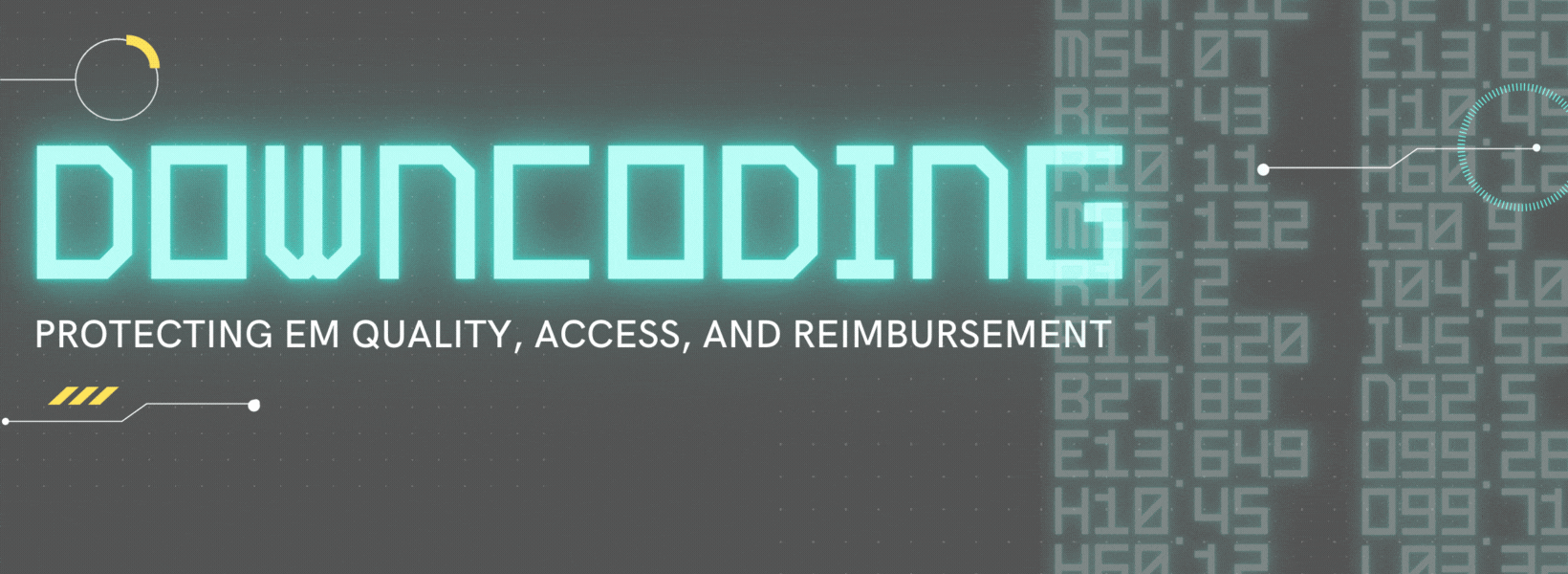The Latest on our Biggest '22 Issues
As we move into the second half of 2022, we wanted to provide a quick update on where things stand with our three primary advocacy issues in Virginia.
DOWNCODING | Pushing back on a damaging penalty
Update as of May 2022: We’ve amended a lawsuit with VHHA (more below) to add the Centers for Medicare and Medicaid (CMS) and Health and Human Services (HHS) as parties, per the judges’s request. In addition, we’re reaching out to Governor Glenn Youngkin’s administration to urge resolution between CMS and Virginia’s Department of Medical Assistance Services (DMAS).
Get our primer on Downcoding on our dedicated landing page.
Our biggest fight in 2021 and thus far in '22 was a Virginia policy that improperly penalizes emergency physicians for providing care. Since 2020, Virginia has automatically cut Medicaid payments to $15 for ED visits that fall on a list of 790 codes improperly deemed "preventable or avoidable." VACEP and the Virginia Hospital & Healthcare Association filed suit against the Commonwealth in federal court. After almost a year, the case was remanded back to lower court. We also submitted budget amendments to the General Assembly to repeal the program, and appealed to CMS to end the policy.
The latest: The situation looked bleak, until March, when we learned that CMS’s Medicaid Managed Care division was surprisingly unaware of the policy in Virginia (managed-care organizations are responsible for 96% of Virginians on Medicaid). They agreed with us: that CMS policy states that MCOs cannot downcode based on a list or on final diagnosis and must code according to prudent-layperson standards (EMTALA). The next step is waiting for them to reach out to Virginia’s Department of Medical Assistance Services (DMAS). We are awaiting that process. Unfortunately, our budget amendments were not included in lawmakers’ budget proposals, so they will not be in the final budget.
PAYMENT DISPUTES | Supporting a federal challenge
Virginia's own surprise-billing law went into effect in 2021. It created an arbitration process for contractual reimbursement disputes that takes patients out of the middle. But federal issues remain. VACEP filed an amicus brief (a legal filing that supports another case without getting involved in it) backing a Texas Medical Association lawsuit against federal agencies to challenge the legality of the dispute-resolution process in the federal No Surprises Act. While that Act protects patients, as written, it allows insurers to manipulate fair payment standards with little or no transparency.
The latest: Our support of the Texas lawsuit was critical in a judge ruling entirely in its favor, resulting in the Centers for Medicare & Medicaid Services reversing their interim final rule implementing the No Surprises Act. The result will be a fairer arbitration process when billing disputes emerge as part of the Act.
SCOPE OF PRACTICE | Keeping NP training to five years
Under an emergency order to address COVID staffing shortages, then- Governor Ralph Northam’s administration removed a five-year training requirement for independent NP practice and changed it to just two years — albeit temporarily. However, a bill in the 2022 General Assembly pushed by NPs tried to make this temporary provision permanent. This would have been to the detriment of quality patient care.
The latest: A team effort successfully amended the bill to keep clinical training to five years. Those NPs who received a license during the pandemic (when the requirement was reduced to address emergency needs) are allowed to keep their status under this new substitute bill. This bill passed the Senate, but the House (where Delegate Dawn Adams originally introduced the two-year bill) did not accept the Senate amendments, putting the bill into a conference committee to be resolved. There has been no resolution and if the bill fails, on July 1, 2022, the law will revert back to requiring five years of training.




